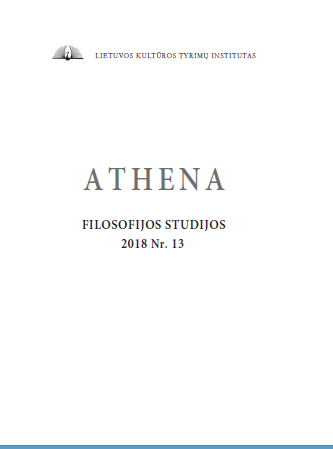ON THE CORPOREAL ORIGINS OF LANGUAGE: DERRIDA SAYS YES TO JOYCE
ON THE CORPOREAL ORIGINS OF LANGUAGE: DERRIDA SAYS YES TO JOYCE
Author(s): Jūratė LevinaSubject(s): Structuralism and Post-Structuralism, Phenomenology, Theory of Literature, British Literature
Published by: Lietuvos kultūros tyrimų
Keywords: Derrida; Joyce; Husserl; corporeality; sense;
Summary/Abstract: This paper elaborates on the insight that, in his 1984 address to Joyce scholars “Ulysses Gramophone,” Jacques Derrida performs a methodologically comprehensive phenomenological analysis to show that James Joyce’s Ulysses activates the essential structures of experience to make the reader live through the constitution of sense as corporeally lived and grasped meaning. A deceptively casual collection of facts Derrida rehearses in this talk is, also, a Husserlian variation of connections and continuities between the body, in its many manifestations, and the signifying structures of the socio-cultural order and consciousness. This variation leads Derrida’s deconstructive analysis to the discovery of the originary event – the constitution of distinction and, with it, language – in the living flesh which, as Derrida finds in Joyce, is the locus and experience of the sensual, corporeally lived intentionality.
Journal: Athena: filosofijos studijos
- Issue Year: 2018
- Issue No: 13
- Page Range: 57-66
- Page Count: 10
- Language: English

